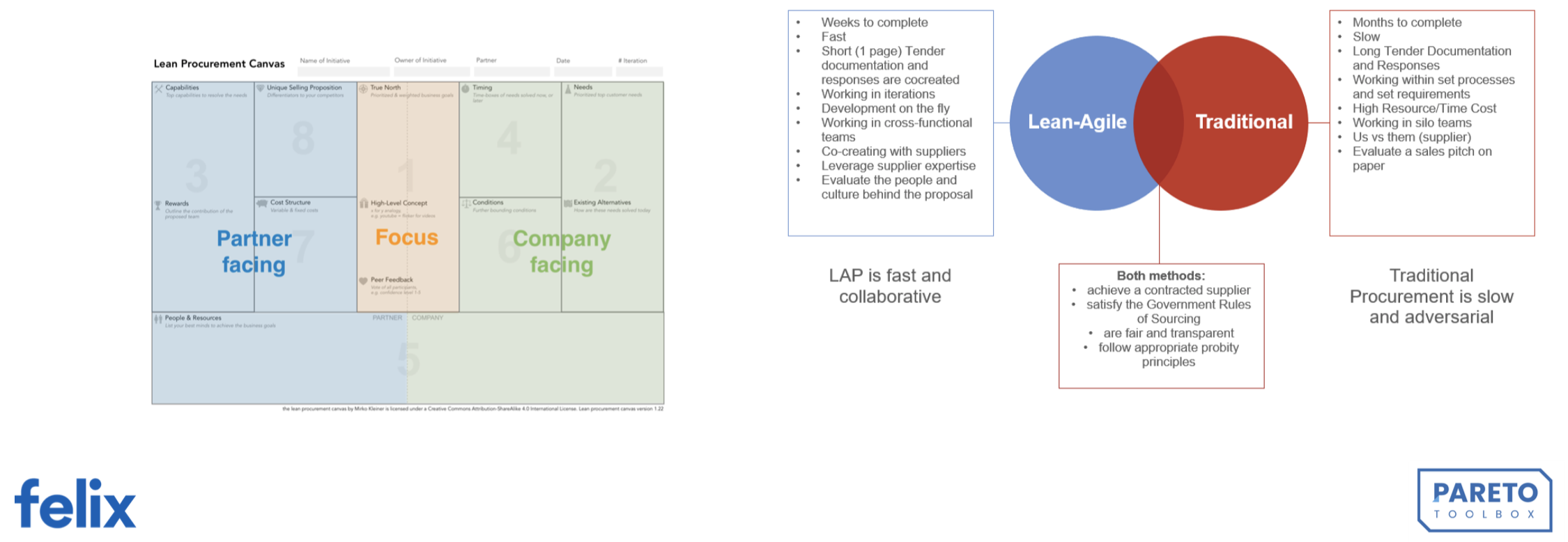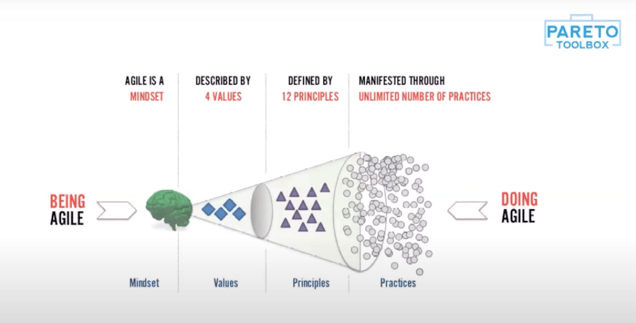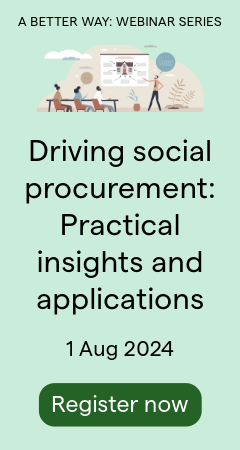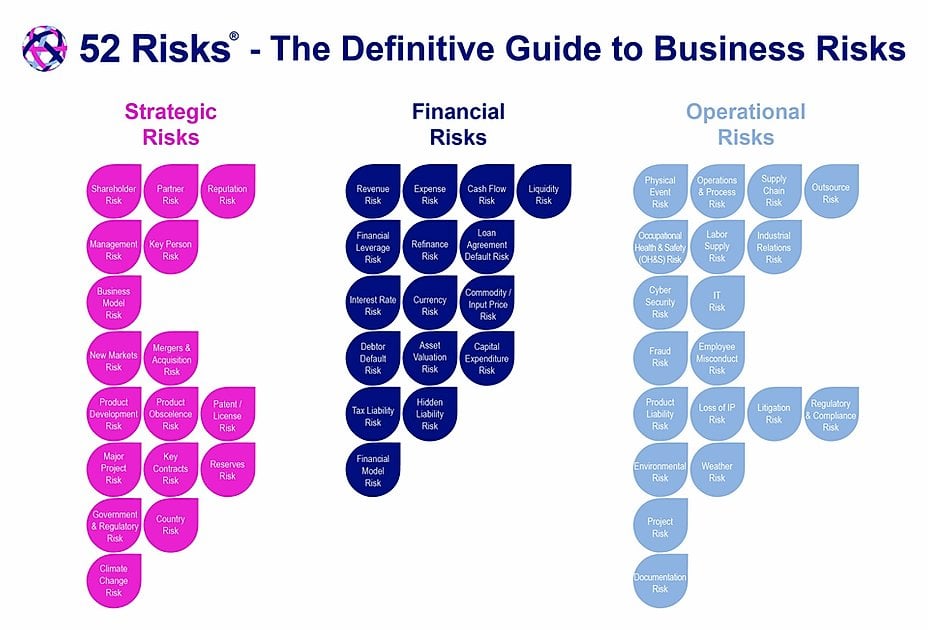The following is a recap of the Q&A section from our live webinar on June 11th. I spoke with Ross Darrah, Founder & CEO of Pareto Toolbox. The interview has been lightly edited for clarity.
QUESTION 1
I'll kick off with this question, Ross. So from our perspective, when is the best time to consult or include suppliers in the business case process, is it early on to get some collaboration? What are your thoughts there?
Ross Darrah:
Absolutely. When I talk about lean agile procurement, that applies to all stages of the procurement process. So I gave you an example of a lean agile sourcing event where you can actually select the supplier in 2 days, rather than a long laborious process that you may well do today, but equally that applies to business requirements.
As an example, Douglas Pharmaceuticals, they recognised that they had a procurement initiative around record management. They had a lot of manual records and they thought, “how do we actually make this, automate this, digitalise this? Save money, make it more efficient and effective?” They kind of knew the situation, but they really didn't know what the complications would be.
So what they did is they invited two competitors, record management companies, in the room and asked “help us define our situation, complication, question and answer”.
Those suppliers each gave their time for free, gave free advice, because what it meant was that Douglas then decided to go to market. They ran a simple RFP process, but they had requirements that were tight and accurate and appropriate to the marketplace so the suppliers could be efficient and effective and answer those questions.
QUESTION 2:
How would you advise a consultant who has driven for change in a business that's not motivated to change?
Ross Darrah:
Get another job. So at the end of the day, you have to work with the culture, you have to work with the organisation. And the reality is some organisations don’t want to change. If they change, a hundred percent, then they need to change properly. But at the end of the day, they don’t want to, so you can't make them or force them.
So how do you align what they do want, what's motivating them and give them what they want? Because that will give you a happy internal customer.
Some of these conversations take a long period of time because you've got to demonstrate results. It's why we believe everything should be real results every 90 days. And as you build that trust and respect inside your client organisation, you'll find other opportunities open up.
QUESTION 3:
From an overarching perspective, Ross, how do you see the next 12 months? I know New Zealand is ahead of the curve, ahead of Australia anyway, for getting out of lockdown. But how do you see business sort of getting back to a bit of normality?
Ross Darrah:
I don't think you will ever get back to normality as it was. I'm fortunate enough to have been in London where we hit the share market crash in ‘97. I ran a business in New Zealand when we hit the GFC in 2007, and now I've lived through COVID. If I look back on all those three macro events, it has resulted in a different world from before those events. So if anyone thinks that we'll go back to what it was like literally six months ago, it won’t be.
The whole issue about how to manage Chinese manufacturers, how to find a reliable source of supply, all those real challenging questions as what the future's going to be. There's no doubt there's good opportunity for the more entrepreneurial type people. Some of the more traditional, old thinking will not be there, but again, I can name companies that existed – significant brands in New Zealand that existed pre-2007 that no longer exist anymore.
What happened to Kodak? So there's going to be a few more Kodak stories cause they couldn't stay up and remain relevant to the marketplace. And I think that will apply to organisations. With that said, on the positive side, competition in the future will be between supply chains, not between individual companies. So how do we strengthen our supply chains to work really strong, to provide that good service to the customer?
“Competition in the future will be between supply chains, not between individual companies.”
QUESTION 4:
And from your business perspective, what's been the biggest learning for you guys?
Ross Darrah:
Team culture. Top of the head is, you know, we’re lucky we have a team of about 15 and we've stayed united and stayed very tight. And as someone said the other day, we've been to war and back together and we survived. So it's definitely that level of camaraderie. And I'm sure people have got examples of that on the call. You know, better friendships, better relationships and the whole thing.
I don't just say that for my own team. We were supporting some of our clients. We were literally, at one stage, doing pro bono work for our clients just to help them deal with their issues at that time. Those sort of things will build stronger relationships.
QUESTION 5:
That's a great answer that sort of links to my next question. For procurement, how can I manage that balancing act for being understanding of the situation that some suppliers have been in and gone through? One of your slides earlier was about going back and renegotiating contracts and sort of contesting some of the agreements that might have been in place. How can procurement balance those relationships with some of their suppliers?
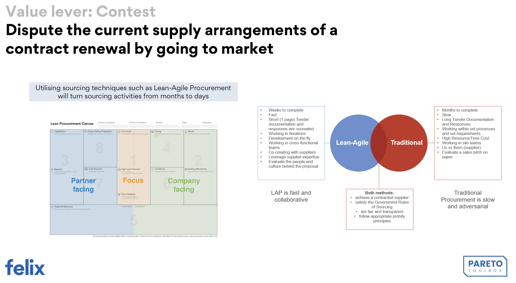
Ross Darrah:
Unfortunately, there's not one simple answer to that. There are four answers to every question based on the project matrix. So you kind of need to segment your suppliers into the project matrix. Work which ones are strategic to you, which ones are non-critical, bottleneck or leverage, and then how do you approach them at the time?
There's no doubt selling a full contract to a supplier today is very attractive and you'll get a very sharp price for it because they want that security, they want that continuity. Acknowledging that a bankrupt supplier is no good to you, so you can't put them to the wall, but there are ways that you can actually help each other and achieve mutual benefit. I think to your point, mutual benefits here, the way it's defined in the future will be different to the past.
Want to watch the full webinar with Ross’ presentation? Head over to this page to register.
About Ross Darrah
With over two decades of industry experience working in a number of industry sectors, Ross has made a lasting imprint in the field of Supply Chain and Procurement within New Zealand. His exposure to various industry practices has greatly attributed to his in-depth knowledge and dynamic skill set in the art of opportunity identification, simplification, standardisation, efficiency and cost savings in both supply chain and procurement.
Ross is the driver of Pareto Toolbox’s rapid delivery of service, and he is a big proponent of collaborative planning, efficient implementation and a thorough review process. His deep knowledge of industry, leadership, programme management and a track record of proven results bond the rest of the Pareto Toolbox team together.

Related Articles

Questions to ask when managing supply chain through COVID-19 and beyond
Whilst many countries and organisations are edging towards the next phase with recovery in mind, it might be a useful exercise to re-visit some questions that should have been asked a few weeks ago. And if they were asked, were there sufficient answers or solutions provided by technology?

How COVID-19 could transform the global supply chain model
There’s no doubt that COVID-19 has forced manufacturers to reassess their supply chain strategies. With disruptions, delays and closures crippling the industry, we’ve seen essential supplies become temporarily unavailable, rationed or even sold to the highest bidder.
Let's stay in touch
Get the monthly dose of supply chain, procurement and technology insights with the Felix newsletter.
